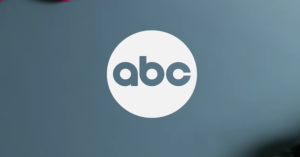The Internal Revenue Service and the Treasury Department were ordered to pay over $100 million in stimulus checks to incarcerated individuals. The IRS had said imprisoned Americans were not eligible to receive the economic impact payment included in the CARES Act, but U.S. District Court Judge Phyllis Hamilton issued an order on Sept. 24 to the government to send the payments within the next 30 days. The IRS and Treasury have 45 days to submit the documentation that the payments were sent.
In May, the Treasury Department’s Inspector General reported that at least 80,000 incarcerated people were eligible for a stimulus check, reports Forbes. Other incarcerated individuals who have not filed a claim to receive a check can also do so now. The case before Hamilton came up after the IRS added a message on its “Frequently Asked Questions” page about the stimulus checks and imprisoned people on May 6. It specifically states that an “incarcerated individual” was not eligible. The IRS even had incarcerated individuals who received stimulus checks return them. Some state prison sentences intercepted the payments before they even reached the individuals.
Videos by PopCulture.com
Legal experts were not so sure the IRS had the power to do this. The CARES Act language said nothing about depriving incarcerated individuals of stimulus payments. Stephen Raher of the Prison Policy Initiative accused the IRS of making up the rule “out of whole cloth and announced it by posting it on a webpage.” Others also pointed out that when stimulus checks were mailed out in 2009, Congress specifically excluded incarcerated people in the legislation. If Congress wanted to do that again with the CARES Act, they could have.
“There is nothing in the CARES Act that gives the IRS authority to decide that incarcerated people are ineligible to receive stimulus checks,” Sen. Sherrod Brown, a Democrat from Ohio, told The Appeal in July. “Inmates—who are disproportionately people of color and from low-income communities—already suffer from a lack of resources and heightened exposure to COVID-19 due to the failed response to the virus by the prison system. Incarcerated people and their families need more help during this pandemic, not more undue punishment.”
In her preliminary injunction, Hamilton wrote that the plaintiffs could succeed in their claim and “the statute mandates distribution of the advance refund to eligible individuals.” Hamilton wrote that “incarcerated persons who otherwise qualify for an advance refund are not excluded as an ‘eligible individual’” and that “the IRS’s decision to exclude incarcerated persons from advance refund payments is likely contrary to law.”
Monica Taratao of the Equal Justice Society and an attorney for the plaintiffs celebrated Hamilton’s decision. “The Treasury Department’s theft of the CARES Act supplements that Congress intended get to people in need right away is not only illegal but cruel to the people and families most harmed by COVID-19 and over-incarceration — Black, Latinx, and Native people and people with lower incomes,” Tawatao said, noting that the order will “bring them critical relief and some measure of justice.”








